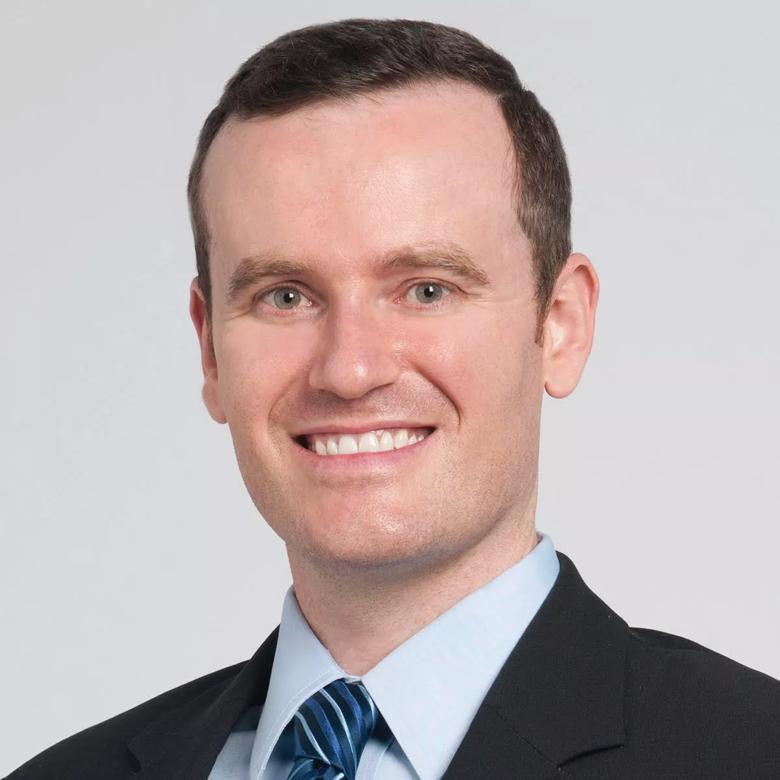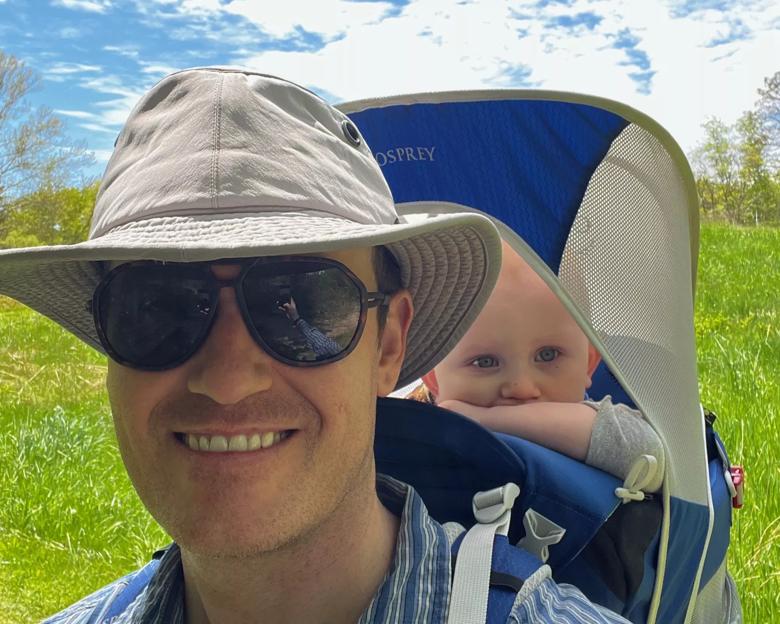Meet William Tierney, MD, MS (CCLCM’16, OTO’18)

Image content: This image is available to view online.
View image online (https://assets.clevelandclinic.org/transform/c5377afd-e8f5-4941-a311-632ca18aa563/william-tierney-headshot)
Dr. William Tierney, MD, MS (CCLCM’16, OTO’18), is an Assistant Professor of Surgery and a Staff Laryngologist in the Cleveland Clinic Head and Neck Institute. Following his undergraduate studies at UC Berkeley, Dr. Tierney moved to Cleveland to attend graduate school at Case Western Reserve University (CWRU), followed by medical school at the Cleveland Clinic Lerner College of Medicine (CCLCM). He completed his residency at the Cleveland Clinic, followed by a Fellowship in Laryngology and Care of the Professional Voice at the Vanderbilt University Medical Center. The son of two Yosemite Park Rangers, Dr. Tierney’s love for the wilderness has continued today, and he enjoys hiking with his wife and two children any chance he gets.
Advertisement
Cleveland Clinic is a non-profit academic medical center. Advertising on our site helps support our mission. We do not endorse non-Cleveland Clinic products or services. Policy
Q: Can you tell us a little about the path that led you to where you are now and what sparked your interest in the head and neck specialty?
A: I realized that I wanted to end up in the head and neck space when I took a course as a junior at UC Berkeley taught by Jeff Winer, one of the world experts on auditory pathways. It was the first time that I fell in love with a subject to the degree that I was doing it in my free time. I moved to Cleveland because there’s a Master of Anatomy program at CWRU that had specialization in craniofacial anatomy, which was related to my interest. I did a master's program there before starting at CCLCM.
Q: What is your strategy for navigating the healthcare field?
A: One of the things that I think is critical for physicians to do is explain information to patients in a way that’s well understood. Taking the extra five minutes to further describe and incorporate scientific rationale for treatment empowers patients and makes a considerable difference in how involved they are in their care.
Advancing science so that you use it in a way that is meaningful to patients is the focus of my research career. I’m focused on trying to figure out how we can utilize evidence-based medicine to improve patient care. It’s the manifesto of a clinician scientist but it resonates with and motivates me to keep starting new studies and slowly gain a better understanding of the human side of the equation.
Q: What do you find to be the most rewarding/gratifying aspects of your work?
A: Overall, the most rewarding part of my job is working with people. I’m fortunate because I treat acute diseases with relatively rapid results. I treat a lot of people with voice and airway pathology. After surgery, patients with very little voice leave the operating room with their voice substantially restored. Those with airway narrowing often wake from anesthesia to the first full breath they’ve had in months. Both the interactions with people and being a part of their road to recovery, have been very meaningful to me.
Advertisement
Q: Do you have any favorite memories during your time training at the Cleveland Clinic or any mentors that you would like to mention?
A: I would specifically mention Paul C. Bryson, MD (Staff’10), Director of the Cleveland Clinic Voice Center. I met Paul when I was a first-year medical student, and he was in his first year on staff. We developed a research paradigm in the voice center together and have done some meaningful research on tracheostomy quality improvement, airway stenosis, and some sub-specialized voice disorders. It’s been a partnership from day one. Getting to continue to do that today, because he’s now the Director of the Voice Center, has been one of the real joys of being on the team.
An additional person to note is Robert Lorenz, MD, MBA (S’97, OTO’02) a head and neck surgeon I had the opportunity to train with, and now President of Cleveland Clinic London. I would credit him for sparking my interest in airway reconstruction, which is something I sought out in my fellowship training, and for involving me in national-level research projects on airway stenosis. He taught me to always have a backup to a backup plan, and that personal innovation can change practice in rare diseases.
Another mentor has been J. Harry “Bud” Isaacson, MD (Staff’93), Executive Dean of CCLCM. He was my clinical preceptor as a medical student, so I worked with him regularly for years. In that time, we developed both a working relationship and a friendship, and I continue to consider him a dear friend. He helped me realize that we have a toolset that we can utilize to foster professionalism within our practice that doesn’t have to be a sterile and dry entity. It can be humorous, joyful, and allow for human interaction and relationships with our patients. He taught me how to create and benefit from a therapeutic relationship, and it’s one of the most meaningful aspects of my practice as a physician.
Advertisement
Q: What motivated you to serve on the Alumni Board? How long have you served?
A: Cleveland Clinic is an amazing place with extraordinary people, and serving on the Alumni Board provides me with the opportunity to represent my specialty and give back to those people and the organization.

Image content: This image is available to view online.
View image online (https://assets.clevelandclinic.org/transform/6728520f-1945-44c4-8fc9-babcf3f8cdfb/william-tierney-and-son)
Q: What are your hobbies or interests outside of work?
A: Outdoorsmanship and mountaineering would be the biggest hobbies. Recently my main interest/time investment has been raising two brave little boys. My family and I enjoy hiking as often as we can and make sure to put our boots on at least once a week year-round.
Q: What piece of advice would you like to leave with readers and future alumni?
A: Investing the energy to be totally present in both the workplace and with my family has provided me with a great deal of personal satisfaction. Drawing a line between time spent with my kids and time spent with colleagues has been very valuable, if difficult. I have “protected hours” when my kids are my only responsibility and I have missed out on some committee work and meetings that fall during those hours. It often means finishing work after hours, but it’s been worth it to be there with my wife and boys every day.
Finally, fostering the interests of colleagues and providing them the opportunity to excel in their current position, no matter their level of experience, is critical to the strength of team dynamics and leadership. I have friends and collaborators who are senior scientists and friends and collaborators who are medical assistants. It’s all about finding people who love the process and allowing the team to thrive as individuals as well as a unit.
Advertisement
Advertisement
Honoring Exceptional Achievement, Service and Leadership
We celebrate the exceptional achievements of four future alumni
Honoring Exceptional Achievement and Leadership
Meet Hardeep Phull, MD (CCLCM’11)
Meet Samuel Omotoye, MD (CARD/E'15)